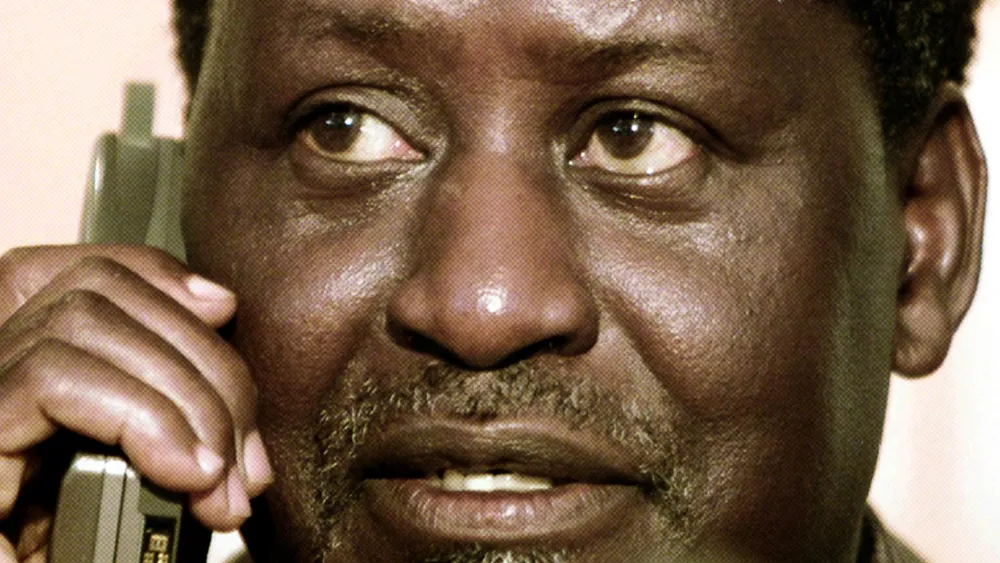
Of course, the American tech industry has famously cozied up to President Donald Trump this year, with CEOs attending his inauguration, changing content moderation policies, and rewriting editorial missions in ways that are friendlier to administration priorities. And as always, what Trump can’t gain through loyalty, he’ll extract through coercion. Either way, the traditional platform economy is being reshaped as commercial platforms and government institutions merge into a monstrous hybrid of business monopoly and state authority.
In the face of all these affronts to their sovereignty, a chorus of world leaders has woken from its daze and started to talk seriously about the once-unthinkable: breaking up with the United States. In February, the centre-right German politician Friedrich Merz – upon learning that he’d won his country’s federal election – declared on live TV that his priority as chancellor would be to “achieve independence” from the US. “I never thought I would have to say something like this on a television program,” he added.
In March, French president Emmanuel Macron echoed that sentiment in a national address to his people: “We must reinforce our independence,” he said. Later that month, Carney, the new Canadian prime minister, said that his country’s old relationship with the US was “over.”
“The West as we knew it no longer exists,” said Ursula von der Leyen, the head of the EU Commission, in April. “Our next great unifying project must come from an independent Europe.”
But the reality is that, for many allies, simply declaring independence isn’t really a viable option. Japan and South Korea, which depend on the US to protect them against China, can do little more than pray that the bully in the White House leaves them alone.
For now, Denmark and Canada are the other US allies most directly at risk from enshittification. Not only has Trump put Greenland (a protectorate of Denmark) and Canada at the top of his menu for territorial acquisition, but both countries have militaries that are unusually closely integrated into US structures. The “transatlantic idea” has been the “cornerstone of everything we do,” explains one technology adviser to the Danish government, who asked to remain anonymous due to the political sensitivity of the subject. Denmark spent years pushing back against arguments from other allies that Europe needed “strategic autonomy.” And according to a former adviser on Canadian national security, the “soft wiring” binding the US and Canadian military systems to each other makes them nearly impossible to disentangle.
That explains why both countries have been slow to move away from US platforms. In March, the outspoken head of Denmark’s parliamentary defence committee grabbed attention on X by declaring that his country’s purchase of F-35s was a mistake: “I can easily imagine a situation where the USA will demand Greenland from Denmark and will threaten to deactivate our weapons and let Russia attack us when we refuse,” he tweeted. But in reality, the Danish government is even now considering purchasing more F-35s.
Canada, too, has already built its airstrike capacities on top of the F-35 platform; switching to another would, at best, require vast amounts of retooling and redundancy. “We’re going to look at alternatives, because we can’t make ourselves vulnerable,” says the Canadian adviser. “But we would then have a non-interoperable air force in our own country.”
If allies keep building atop US platforms, they render themselves even more vulnerable to American coercion. But if they strike out on their own, they may pay a steeper, more immediate price. In March, the Canadian province of Ontario cancelled its deal with Starlink to bring satellite internet to its poorer rural areas. Now, Canada will have to pay much more money to build physical internet connections or else wait for its own satellite constellations to come online.
If other governments followed suit in other domains – breaking their deep interconnections with US weapons systems or finding alternative cloud platforms for vital government and economic services – it would mean years of economic hardship. Everyone would be poorer. But that’s exactly what some world leaders have been banding together to contemplate.
In Europe, discussions are coalescing around an ambitious idea called EuroStack, an EU-led “digital supply chain” that would give Europe technological sovereignty independent from the US and other countries.
The idea gathered steam a couple of months before Trump’s re-election, when a group of business leaders, European politicians, and technologists – including Meredith Whittaker, the president of Signal, and Audrey Tang, Taiwan’s former minister of digital affairs – met at the European Parliament to discuss “European Digital Independence.”
According to Cristina Caffarra, an economist who helped organise the meeting, the takeaway was stark: “US tech giants own not only the services we engage with but also everything below, from chips to connectivity to cables under the sea to compute to cloud. If that infrastructure turns off, we have nowhere to go.”
The feeling of urgency has only grown since Trump retook office. The German and French governments have embraced EuroStack, while major EU aircraft manufacturers and military suppliers like Airbus and Dassault have signed on to a public letter advocating its approach to “sovereign digital infrastructure.” In all the European capitals, the Danish government adviser says, teams of people are calculating what elements should be folded into the effort and what it would cost.
And EuroStack is just one part of the response to enshittification. The European Union is also putting together a joint defence fund to help EU countries buy weapons – but not from the US. The EU’s executive agency, the European Commission, is patching together a network of satellites that could eventually provide Ukraine and Europe with their own home-baked alternative to Starlink. Christine Lagarde, the head of the European Central Bank, has also started talking pointedly about how Europe needs its own infrastructure for payments, credit, and debit, “just in case.”
Robin Berjon, a French computer scientist who spoke at the first EuroStack meeting, acknowledges that the project has yet “to get proper financing and institutional backing” and is “more a social movement than anything else.” If these projects succeed, they will be expensive and slow to bring online—and most will almost certainly underperform cutting-edge US equivalents. But Europe’s issues with American platforms are no longer just about ads and cookies; they’re about the very future of its democracies and national security. And in the longer term, the US itself faces a disquieting question. If it no longer provides platforms that the rest of the world wants to use, who will be left—and whose interests will be served—on American networks?
After Doctorow’s platform monopolists enshittified the user experience, they turned on the businesses that were their actual paying customers and started to abuse them too. US citizens are, ostensibly, the true customers of the US government. But as difficult and expensive as it will be for US allies to escape the enshittification of American power – it will be much harder for Americans to do so, as that power is increasingly turned against them.
As has been documented, the Trump administration has weaponized federal payments systems against disfavoured domestic non-profits, businesses, and even US states. Contractors such as Palantir are merging disparate federal databases, potentially creating radical new surveillance capabilities that can be exploited at the touch of a button.
In time, US citizens may find themselves trapped in a diminished, nightmare America – like a post-Musk Twitter at scale – where everything works badly, everything can be turned against you, and everyone else has fled. De-enshittifying the platforms of American power isn’t just an urgent priority for allies, then. It’s an imperative for Americans too.
- A Tell Media report / Adapted from Wired








